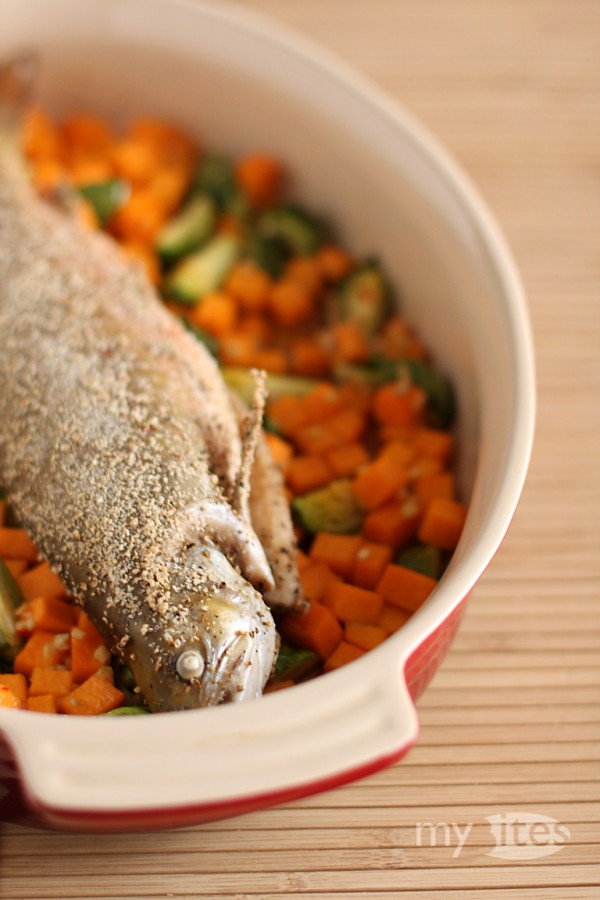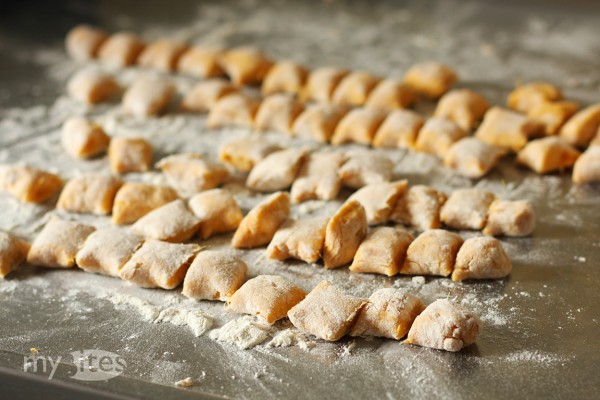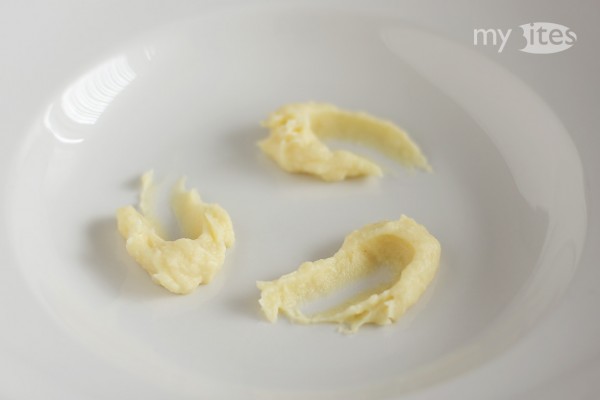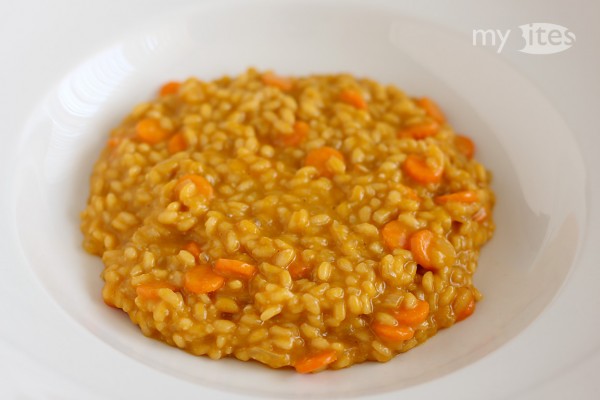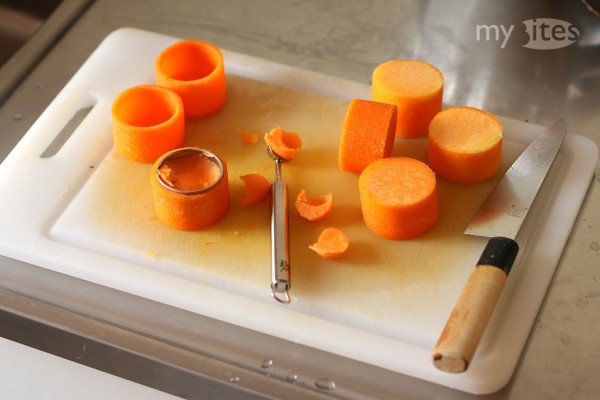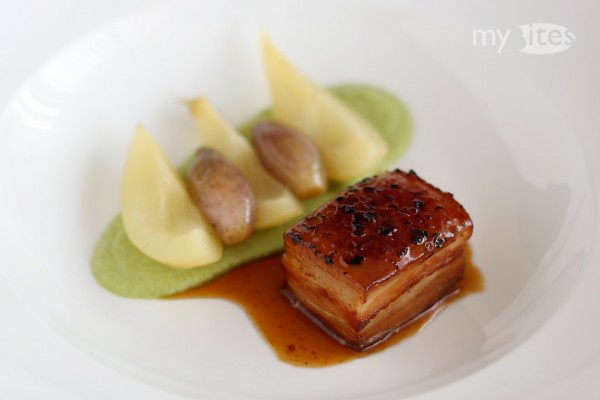Oven baked whole trout or char is one of my favorite dinners. It is simple, fast, delicious and infinitely versatile. Usually, the fish can bought already cleaned and it doesn’t have to filleted. It can be stuffed and flavored with almost any kind of herb, spices or citrus fruits. Also the vegetables can be adjusted according to what you have at home and what vegetables are currently in season. For example, during autumn I prefer to use various mushrooms or fennel and apples. In winter, broccoli with white wine and garlic is great, and also this current combination of butternut squash and Brussels sprouts.
Sweet Potato Gnocchi with Cinnamon Ice Cream
Next to blackberries, quince is my most favorite fruit. Although it resembles a pear or an apple, it is far too hard and sour to be eaten raw. However, if you cook quince almost indefinitely it not only turns to a lovely pink or red color, but also develops an irresistibly rich flavor. Unfortunately, the season for quince is quite short during autumn, but you can keep the jam, puree or quince jelly for several months. It pairs great with cheese, however, this time I used the quince puree in a dessert paired with another typical autumn and winter ingredient: sweet potato.
Pigeon Breast with Quince Sauce and Autumn Vegetables
I wondered why red or white wine is usually added to reduced sauces. Usually the wine is allowed to cook off completely, so in most cases – as long as you’re not cooking specifically a red wine sauce – wine is not so much added for its taste than rather for its acidic component. Another function of the wine is to scrape off the brown roasted parts from the bottom of the pot, but for this purpose water works perfectly well too. Instead of the wine I had the idea to add some quince as an acidic component. Cooking quince over a long time magically enhances its flavor, so I thought it would work ideally in a sauce too, since the the basic stock had to be cooked for several hours. The quince worked really well in the sauce, so if you have any problems with adding alcohol to a sauce – although the alcohol will cook off completely – during autumn you can add some fresh quince instead.
Butternut Squash Risotto
While peeling and cleaning a pumpkin or butternut squash, the skin and the seeds usually get discarded. From one point of view this is somehow understandable, because neither the hard skin, nor the stringy seeds have a pleasant texture. On the other side, they are edible and contain a lot of flavor, so it would be favorable to use the “waste” somehow. I had the idea to add the discarded pumpkin seeds and skin parts to a vegetable stock. The resulting orange colored stock can be added to a butternut squash soup, used for cooking pumpkin cubes or cylinders, which might also be blended into a fine puree – or for making this ultimate butternut squash risotto.
Pumpkin Dominostein
Pumpkins and squashes are extremely versatile. In Hungarian language the butternut squash is called “baking squash” (sütőtök), because traditionally it is simply cut in slices and baked in the oven until nicely caramelized. The name is somehow misleading, because pumpkins and squashes can be also cooked, steamed, or even be eaten raw or marinated. By adding sugar or syrup they work really well in cakes or sweets too. Based on this sweet application I created a mini cake inspired by Dominosteine, a praline of German origin.
Pork Belly Glazed with Pine Tree Honey, Green Bean Puree, Vanilla Shallots and White Wine Pears
Similarly to the green bean soup, this dish builds on the traditional combination of the three ingredients: beans, pears and bacon. Due to several modifications, my reinterpretation is pretty far away from the classical way of cooking everything layered in a single pot. Here each component received a unique role on the plate, and I also brought the fourth hidden component, the onions more into the foreground.
